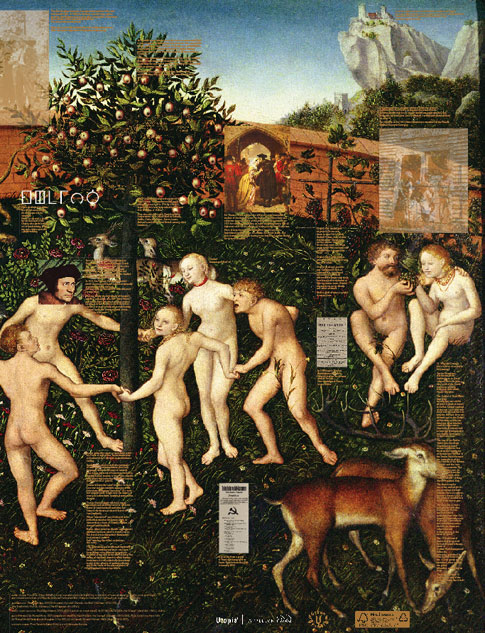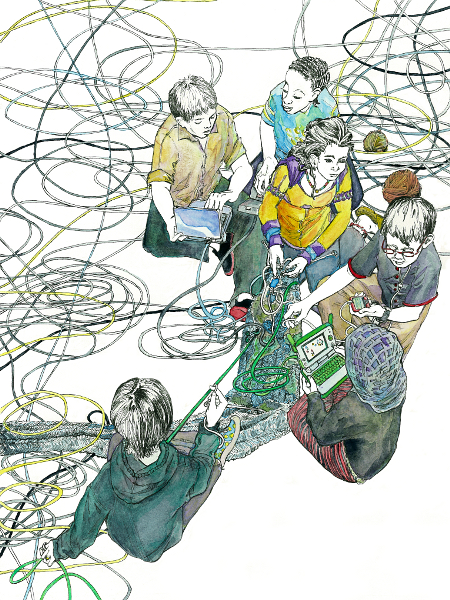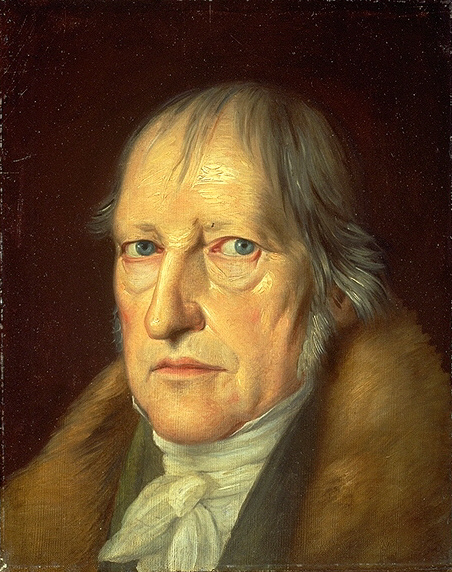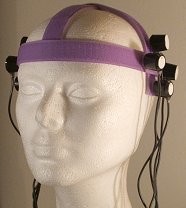

|
Entrance (after Rilke) |
1 January 2010
|
||
|
“No man can ever be secure until he has been forsaken by Fortune.” — Boethius, AD c477 - 524 |
2 January 2010
|
||
|
Manifesto I tried first the Western, individualist model that I learned in childhood: even then, it was not simply self-gratification, but work toward the end of individual aggrandizement. I found that my victories were lonely, and left me feeling empty. I discovered service: a life devoted to helping others. Sometimes I
encountered grateful receptivity, and sometimes angry repudiation, but
always I was able to feel virtuous. We all need to serve, and all but the strongest egos need for our service to be acknowledged and our unique contributions recognized. The capitalist culture of competition assures that most participants carry a burden of failure, and even those who succeed win a hollow dominance. So I come to my calling as a radical revolutionary. Supplanting the individualist social structure with a cooperative utopia – now there’s a worthy life’s work. — Josh Mitteldorf |
3 January 2010
poster by Marc English based on The Golden Age, by Lucas Cranach, c1530 |
||
|
Roger Bacon’s Four Stumbling Blocks to Truth Quatuor vero sunt maxima comprehendendæ veritatis offendicula, quæ omnem
quemcumque sapientem impediunt, et vix aliquem permittunt ad verum
titulum sapientiæ pervenire: videlicet fragilis et indignæ auctoritatis
exemplum, consuetudinis diuturnitas, vulgi sensus imperiti, et propriæ
ignorantiæ occultatio cum ostentatione sapientiæ apparentis. Four obstacles to real wisdom and truth, viz. errors and their sources
(the four general causes of human ignorance): 1) the example of weak and
unreliable authority; 2) continuance of custom; 3) regard to the opinion of
the unlearned; and 4) concealing one’s own ignorance, together with the
exhibition of apparent wisdom. (other translations) |
4 January 2010
|
||
|
Why God won’t go away Most secular thinkers believe that religion is an entirely
psychological invention—born out of confusion and fear—to help us cope
with the struggles of living and comforts us in the face of the terrible
certainty that we will die. But researchers Andrew Newberg and Eugene
d’Aquili offer a new explanation, at once profoundly simple and
scientifically precise: the religious impulse is rooted in the biology
of the human brain.
Newberg and d’Aquili base this revolutionary conclusion on a long-term
investigation of brain function and behavior as well as studies they
conducted using high-tech imaging techniques to peer into the brains of
meditating Buddhists and Franciscan nuns at prayer. What they discovered
was that intensely focused spiritual contemplation triggers an
alteration in the activity of the brain that leads one to perceive
transcendent religious experiences as solid, tangible reality. In other
words, the sensation that Buddhists call “oneness with the universe” and
the Franciscans attribute to the palpable presence of God is not a
delusion, or subjective psychology, or simple wishful thinking. The
inescapable conclusion is that God seems to be hard-wired into the human
brain. Of course, people who reject belief in God as unscientific are unlikely to be swayed by evidence that our brains are hard-wired for religious experience. If you define reality by what can be agreed upon widely among rational humans because of reproducible experimental results, then what do you make of somewhat-reproducible but subjective phenomena, like meditative experiences or trance states, that are entirely within one person’s brain? David Sloan Wilson has made the best argument I know of for religion as an evolutionary adaptation. But the kind of religion he studies consists of rituals, church hierarchies, and rules for behavior. He does not deal with mystical experiences. So the question arises: if we think our brains are a product of natural selection for survival and reproductive fitness, and if we find that our brains are pre-adapted for mystical experiences of unity, then how do we imagine that that adaptation arose? and what evolutionary purpose does it serve? |
5 January 2010
|
||
|
Sonnet )when what hugs stopping earth than silent is and without was if minus and shall be end’s ending then these dolls of joy and grief until out of merely not nothing comes — e e cummings |
6 January 2010
|
||
|
The coming age of personalized medicine In the past decade, the cost of reading and writing DNA has dropped a million-fold, outstripping even Moore’s law for exponentially increasing computer power. The challenge for the next decade will be to integrate molecular engineering and computing to make complex systems. The development of engineering standards for biological parts, such as how pieces of DNA snap together, will permit computer-aided design (CAD) at levels of abstraction from atomic to population scales. Biologists will have access to tools that will allow them to arrange atoms to optimize catalysis, for example, or arrange populations of organisms to cooperate in making a chemical. The obvious application will be in manufacturing and delivering drugs more efficiently. However, these treatments might be superseded by smarter ones, such as oral vaccines and ‘programmable’ personal stem cells or bacteria (which exploit sensors, logic and actuators harvested from natural and lab evolution) that could, for example, sense a nearby tumour, coordinate an attack and drill into the cancer cells to release toxins. Another application is in the production of chemicals, biofuels and foods — for example, the development of parasite-resistant crops or photosynthetic organisms that can double their biomass in just three hours. As costs drop, such technology will allow developing nations to leapfrog fertilizer-wasting, fossil-fuel-intensive and disease-rife farming for cleaner, more efficient systems, just as they are leapfrogging costly landlines in favour of mobile-phone networks. — George Church, Harvard geneticist This excerpt is from Nature Magazine’s compendium of predictions for the coming decade. |
7 January 2010
|
||
|
The happiest country in the world has no army Costa Rica is one of the very few countries to have abolished its army (since 1949), and it’s also arguably the happiest nation on earth. You think it’s a coincidence? The “happy planet index,” devised by the New Economics Foundation, a liberal think tank, combines happiness and longevity but adjusts for environmental impact — such as the carbon that countries spew. Costa Rica wins the day, for achieving contentment and longevity in an environmentally sustainable way. The Dominican Republic ranks second, the United States 114th (because of its huge ecological footprint) and Zimbabwe is last. — Nicholas Kristof’s column in yesterday’s NYTimes |
8 January 2010
|
||
|
‘Many people cannot believe that an elephant is capable of producing any kind of artwork, never mind a self-portrait. ‘But they are very intelligent animals and create the entire paintings with great gusto and concentration within just five or 10 minutes - the only thing they cannot do on their own is pick up a paintbrush, so it gets handed to them. ‘They are trained by artists who fine-tune their skills, and they paint in front of an audience in their conservation village, leaving no one in any doubt that they are authentic elephant creations.’ — Victoria Khunapramot, quoted in a
BBC article Elephants’ artwork is not merely trained by rote to create a specific image. Each picture is unique, and, with practice, they improve their creative expression. another BBC article and a BBC video with interview of Khunapramot more examples of elephant art work. ‘Some forty years ago, the first gallery exhibition of paintings not of but by chimpanzees shocked the art world and precipitated much debate. The animals had produced abstract paintings pleasing to the human eye. Did this mean they had an aesthetic sense, an appreciation of beauty? Elephants, too, can paint—sales of their canvases are now being used to raise money for zoos and conservation—and so can seals and several other species. How can we decide whether these strokes of paint are art or mere daubing, made without awareness or any degree of artistic motivation or aesthetic sense? A similar question can be asked about other forms of art, especially music. Birdsong, for example, may be music to our ears, but do the birds appreciate it as an art form? Idresearch were to prove that animals have an aesthetic sense, we could gain valuable insights into the animals’ level of awareness.’ — Gisela Kaplan and Lesley Rogers, writing for the Dana Foundation |
9 January 2010
Self-portrait by Paya |
||
|
Know thyself Follow your fancy to a life of dissipation; follow your mind to a life of hollow accomplishment; follow your heart to a life of fulfillment. But how to know the difference? How do we discriminate among our inner voices? This is the wisdom which we culture for a lifetime, following the imperative of the Delphic temple. — Josh Mitteldorf |
10 January 2010
|
||
|
Interconnectivity -> interdependence -> entanglement In an Internet-connected world, it is almost impossible to keep track of how systems actually function. Your telephone conversation may be delivered over analog lines one day and by the Internet the next. Your airplane route may be chosen by a computer or a human being, or (most likely) some combination of both. Don't bother asking, because any answer you get is likely to be wrong. Soon, no human will know the answer... We have embodied our rationality within our machines and delegated to them many of our choices, and in this process we have created a world that is beyond our own understanding....We have linked our destinies, not only among ourselves across the globe, but with our technology. If the theme of the Enlightenment was independence, our own theme is interdependence. We are now all connected, humans and machines. Welcome to the dawn of the Entanglement. — from an article by Danny Hillis at Edge.org |
11 January 2010
|
||
|
“There is an ecstasy that marks the summit of life, and beyond which life cannot rise. And such is the paradox of living, this ecstasy comes when one is most alive, and it comes as a complete forgetfulness that one is alive.” — Jack London, born this day in 1876 “You can't wait for inspiration. You have to go after it with a club.” |
12 January 2010
|
||
|
Learning from Europe The European Union (EU) is the world’s largest and most competitive economy, and most of those living in it are wealthier, healthier, and happier than most Americans. Europeans work shorter hours, have a greater say in how their employers behave, receive lengthy paid vacations and paid parental leave, can rely on guaranteed paid pensions, have free or extremely inexpensive comprehensive and preventative healthcare, enjoy free or extremely inexpensive educations from preschool through college, impose half the per-capita environmental damage of Americans, endure a fraction of the violence found in the United States, imprison a fraction of the prisoners locked up here, and benefit from democratic representation, engagement, and civil liberties unimagined in the land where we’re teased that the world hates our rather mediocre ‘freedoms’. Europe even offers a model foreign policy, bringing neighboring nations toward democracy by holding out the prospect of EU membership, while we drive other nations away from good governance at great expense of blood and treasure. — David Swanson, reviewing Europe’s Promise by Steven Hill |
13 January 2010 |
||
|
An old game, still played as effectively as ever... “When liberty is mentioned, we must always be careful to observe whether it is not really the assertion of private interests which is thereby designated.” — G.W. Friedrich Hegel, 1770-1831
“America is therefore the land of the future, where, in the ages that
lie |
14 January 2010
|
||
|
Advertisement The more we demand of ourselves, or the more our task at any given time demands of us, the more dependent we are on meditation as a wellspring of energy, as the ever-renewing concord of mind and soul. And – I could if I wished give you quite a few more examples of this – the more intensively a task requires our energies, arousing and exalting us at one time, tiring and depressing us at another, the more easily we may come to neglect this wellspring, just as when we are carried away by some intellectual work we easily forget to attend to the body. The really great men in the history of the world have all either known how to meditate or have unconsciously found their way to the place to which meditation leads us. Even the most vigorous and gifted among the others all failed and were defeated in the end because their task or their ambitious dream seized hold of them, made them into persons so possessed that they lost the capacity for liberating themselves from present things, and attaining perspective. — Hermann Hesse, fr The Glass Bead Game, tr Richard and Clara Winston |
15 January 2010
|
||
|
“The internet is a playground and I would not have it any other way.”
From: Jane
Gilles
Dear David, --------
From: David
Thorne
Dear Jane, --------
From: Jane
Gilles --------
From: David
Thorne Read on...it gets
funnier
|
16 January 2010
|
||
|
Limits of the Scientific Method For thousands of years of human culture, knowledge was passed along through many channels: in stories, song, in poetry and touch; in histories and treatises and mathematical symbols. With the Enlightenment and especially Francis Bacon in the 16th century came the Scientific Method. Certain modes of knowing are privileged because there is the possibility of objective argumentation which ought to lead all rational observers to common agreements about reality. The rules of the scientific method comprise observation, leading to generalization and perhaps mathematical formulation; testing the deductions of the theory by making predictions and comparing them with observations or with experiments especially designed for this purpose. Replicability, in particular, became a key criterion for scientific truth. The scientific method has been so successful that it has created parallel revolutions in culture, in philosophy and in a wide range of technologies. A community of the the world’s scientists continues to make mistakes large and small, some of which may persist for decades; neverthess, the world scientific community is the most reliable arbiter of truth that humanity has yet devised. So successful has been the scientific project these last few centuries
that it has spawned a philosophy which says that there is no other
legitimate basis for belief, no truths but scientific truths. There is a
temptation among the world’s most rational and best-educated people to
discredit, even to deny convictions that are acquired by other than
scientific means. Direct experience is a rich and varied world of intuitions, revelations, and what Kant called the synthetic a priori. We can try to describe to one another our moods, our sensation of color or sound, sensations of pleasure and of pain, our unique experiences of human consciousness, our dreams, epiphanies, mystical revelations. There is enough common basis in our humanity that sometimes these descriptions find resonance. I would claim that each of us has a unique set of inner experiences (not directly available to others) that form a foundation for our beliefs and values. Anomalies are phenomena that are reliably observed, but are difficult to replicate. Hard-core believers in a scientific world-view may claim that no such things exist – that all anomalies derive from errors in observation. I believe that many but not all anomalies can be explained away as observational error. To discount all reports of unique or un-repeatable observations is to discard a rich potential source of information and understanding. To discount our own experiences with anomaly would be reckless. Historically, new scientific paradigms have been motivated by anomalies that persisted and recurred in different form until someone found a way to encompass them within theory. Perhaps this in itself is sufficient reason to pay attention to anomalies. But we may also believe that there that there are real phenomena in our lives that just won’t be tamed by science. They really happen, but will never be codified or reproduced. Things that go bump in the night. Cold fusion. Flying saucers over Stephenville, TX. Cancer patients that are mysteriously healed. Lisby Mayer’s harp. Robert Jahn’s random number generator. Homeopathy. Acupuncture. Some of these may eventually be explained by science; some may be frauds or errors. Study of these phenomena may be a high-risk, high-reward investment of our time, or may be the most interesting thing to which we can apply our limited human brains. The view that “all anomalies derive from errors of observation” and “all truths are scientific truths” is not a principle that can be established scientifically. Ironically, those who believe this must rely on their own personal intuition; or, more likely, they are relying on something much less reliable: the predominant culture in which they are immersed. – Josh Mitteldorf |
17 January 2010
|
||
|
A plan for the improvement of English spelling For example, in Year 1 that useless letter ‘c’ would be dropped to be replased either by ‘k’ or ‘s’, and likewise ‘x’ would no longer be part of the alphabet. The only kase in which ‘c’ would be retained would be the ‘ch’ formation, which will be dealt with later. Year 2 might reform ‘w’ spelling, so that ‘which’ and ‘one’ would take the same konsonant, wile Year 3 might well abolish ‘y’ replasing it with ‘i’ and Iear 4 might fiks the ‘g/j’ anomali wonse and for all. Jenerally, then, the improvement would kontinue iear bai iear with Iear 5 doing awai with useless double konsonants, and Iears 6-12 or so modifaiing vowlz and the rimeining voist and unvoist konsonants. Bai Iear 15 or sou, it wud fainali bi posibl tu meik ius ov thi ridandant letez ‘c’, ‘y’ and ‘x’ -- bai now jast a memori in the maindz ov ould doderez -- tu riplais ‘ch’, ‘sh’, and ‘th’ rispektivli. Fainali, xen, aafte sam 20 iers ov orxogrefkl riform, wi wud hev a lojikl, kohirnt speling in ius xrewawt xe Ingliy-spiking werld. — Mark Twain |
18 January 2010
|
||
|
Bacteria still form the basis of all life on earth On any possible, reasonable or fair criterion, bacteria are—and always have been—the dominant forms of life on Earth. Our failure to grasp this most evident of biological facts arises in part from the blindness of our arrogance but also, in large measure, as an effect of scale. We are so accustomed to viewing phenomena of our scale—sizes measured in feet and ages in decades—as typical of nature... Not only does the Earth contain more bacterial organisms than all others combined (scarcely surprising, given their minimal size and mass); not only do bacteria live in more places and work in a greater variety of metabolic ways; not only did bacteria alone constitute the first half of life's history, with no slackening in diversity thereafter; but also, and most surprisingly, total bacterial biomass (even at such minimal weight per cell) may exceed all the rest of life combined, even forest trees, once we include the subterranean populations as well. |
19 January 2010
|
||
|
from a philosopher-king The first rule is to keep an untroubled spirit. The second is to look things in the face and know them for what they are. – ‘’ “” — Marcus Aurelius,
c. AD 170 (take a look at WisdomCommons) |
20 January 2010
|
||
|
21 January 2010
|
||
|
Zoltan Kodaly devoted his life to music in the service of students and peasants. He traveled widely in the countryside of his native Hungary in order to collect ethnic music and folk tales. In addition to a symphony and an opera, he composed music for students and children’s voices, and worked with Hungarian public schools to bring a high standard of music competency to the masses. The result? |
22 January 2010
|
||
|
Octopus builds a home Not long ago, tool use was purported to be the exclusive providence of humans. Then there were chimps who used sticks and string in ingenious ways. Then other mammals. How about octopuses? Watch a video of an octopus carrying a half coconut shell to complete a safe hiding place for himself. |
23 January 2010
|
||
|
May all beings realize their fulfillment, — Josh Mitteldorf |
24 January 2010
|
||
|
The hard problem It’s easy to imagine robots with the brainpowerof
Deep Blue*, with language, with sensors of the external world, with a
near-infinite memory, but with no consciousness. No joy, no
sorrow, no love or sadness of parting, no exultation of understanding,
no hope, faith or charity, no thrill of a delicate scent or of lightly
glancing flesh, no warmth of the sun on the back of your neck, no
poignancy of the first Christmas away from home. Perhaps one day a
robot will feel all this in its cogs, but for now we don’t know how to
program poignancy. It’s assumed by most computer scientists and many philosophers that
the sensation of consciousness is essentially dependent on a complex
computer program that is the brain’s neural circuitry. There is
but one piece of evidence for this proposition: that when the brain is
damaged or deprived of blood, consciousness is apparently lost.
But there is no evidence —nor even a hypothesis—to connect neural
activity with subjective experience, only a failure of imagination about
how else things might be arranged. It is not obvious that the
brain is a Turing machine, let alone that it is no more than a
Turing machine. It may even be true that consciousness continues unabated
without the brain, and that it is only our memory of experience
that we lose when the neurons cannot function properly. Chalmers’s hard problem is actually a problem in biochemistry.
For how does the firing of neurons generate a ‘feeling’ of
anything? How do calcium ions rushing through a membrane generate
the sensation of red, or fear, or anger, or love? *IBM chess-playing robot that became world champion in the 1990s. |
25 January 2010
|
||
|
Two perspectives on meditation “Life does not consist mainly, or even
largely, of facts and happenings. It consists mainly of the storm of
thought that is forever flowing through one’s head.”
|
26 January 2010
|
||
|
Michael Persinger, neurobiologist from Laurentian University, has a magnetic device which (some claim) can induce mystical experiences of unity. The magnets are placed around the head, but they are much weaker than magnets used to treat depression (TMS). Side effects and risk of complications is much lower than LSD. The system worked swimmingly for Susan Blackmore; Richard Dawkins just said, ‘Bah - humbuig’, according to a Wikipedia article. You can buy a unit for $650 and try it yourself. Recently, Persinger has used a device based on similar technology to facilitate paranormal transmission of moods or experiences. Brief video Article from back issue of Wired magazine |
27 January 2010
|
||
|
I would encourage people to look around them in their community and find an organization that is doing something that they believe in, even if that organization has only five people, or ten people, or twenty people, or a hundred people. And to look at history and understand that when change takes place it takes place as a result of large, large numbers of people doing little things unbeknownst to one another. And that history is very important for people to not get discouraged. Because if you look at history you see the way the labor movement was able to achieve things when it stuck to its guns, when it organized, when it resisted. Black people were able to change their condition when they fought back and when they organized. Same thing with the movement against the war in Vietnam, and the women's movement. History is instructive. And what it suggests to people is that even if they do little things, if they walk on the picket line, if they join a vigil, if they write a letter to their local newspaper. Anything they do, however small, becomes part of a much, much larger sort of flow of energy. And when enough people do enough things, however small they are, then change takes place. — Howard Zinn, 1922-2010 Listen to
Brother Can you Spare a Dime? from Howard’s last project, |
28 January 2010
|
||
|
Help wanted: philosophy and liberal arts majors preferred Doesn’t it seem that there’s no room in the job market for generalists any more? You have to beat out the competition in one tiny sub-specialty to be considered. It wasn’t always this way. I can remember a time... ...about a billion years ago, when many, many kinds of bacteria were the sole inhabitants of Planet Earth, for the first ¾ of Gaia’s history. Bacteria swap genes promiscuously, so a lot of natural selection was gene-against-gene. To make it in this world, it helped to be useful to many different kinds of bacteria. Such is the theory of Carl Woese, calling upon us to see Darwinian evolution in a new light. Competition of organism vs organism is only a recent phase of an evolutionary process that proceeded gene-by-gene for the first 3 billion years. Whatever Carl Woese writes, even in a speculative vein, needs to be taken seriously. In his ‘New Biology’ article, he is postulating a golden age of pre-Darwinian life, when horizontal gene transfer was universal and separate species did not yet exist. Life was then a community of cells of various kinds, sharing their genetic information so that clever chemical tricks and catalytic processes invented by one creature could be inherited by all of them. Evolution was a communal affair, the whole community advancing in metabolic and reproductive efficiency as the genes of the most efficient cells were shared. Evolution could be rapid, as new chemical devices could be evolved simultaneously by cells of different kinds working in parallel and then reassembled in a single cell by horizontal gene transfer… We are moving rapidly into the post-Darwinian era, when species other than our own will no longer exist, and the rules of Open Source sharing will be extended from the exchange of software to the exchange of genes. Then the evolution of life will once again be communal, as it was in the good old days before separate species and intellectual property were invented. — Freeman Dyson, reviewing Biology’s next revolution for NY Review of Book |
29 January 2010
|
||
|
“The liberty of a democracy is not safe if the people tolerate the growth of private power to a point where it comes stronger than their democratic state itself. That, in its essence, is fascism - ownership of government by an individual, by a group,” — Franklin D Roosevelt, born this day in 1882 ...but did he tell us what to do to turn this situation around? |
30 January 2010
|
||
|
Culture your relationship with your subconscious. Learn to control your dreams, and tangible life will follow. — Josh Mitteldorf |
31 January 2010
|






























